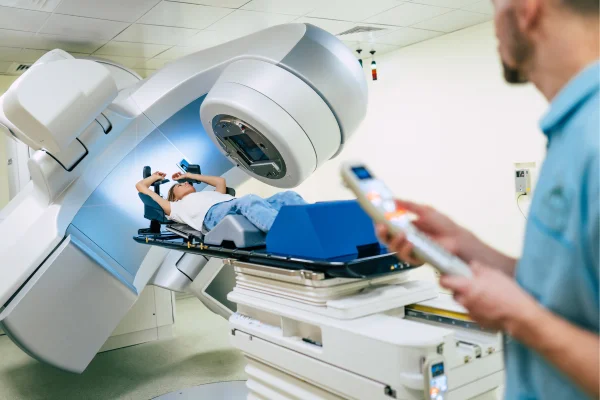The Ministry of Health (MOH) in Singapore has introduced significant updates to the National Electronic Health Record (NEHR) system. Private hospitals are now required to share patient health records with the NEHR to improve healthcare quality, accessibility, and safety.
For healthcare providers, this change not only requires operational adjustments but also highlights the urgent need for compliance with healthcare data protection regulations. With the upcoming Health Information Bill (HIB), failing to meet privacy and security standards could result in severe penalties.
In this blog, we’ll break down what these changes mean, why privacy compliance is critical, and how healthcare providers can prepare for the HIB.
What is the National Electronic Health Record (NEHR)?
The NEHR is a national system that consolidates patient health records across all public and private healthcare providers in Singapore. The goal of NEHR is to provide:
- Seamless Sharing of Health Information: Allowing healthcare professionals to access accurate patient records at any point of care.
- Better Patient Outcomes: Improving decision-making through a comprehensive medical history.
- Increased Efficiency: Reducing duplicate tests, unnecessary procedures, and administrative burdens.
While public hospitals have already integrated with the NEHR, private hospitals are now legally required to do the same. This change ensures consistency in healthcare services for patients regardless of where they seek treatment.
The Role of Private Hospitals in the NEHR
Private hospitals are key players in Singapore’s healthcare ecosystem. By contributing to the NEHR, they provide:
- Unified Patient Records: Centralized access to accurate medical histories across facilities.
- Improved Collaboration: Bridging public and private healthcare services for better coordination.
- Enhanced Patient Experience: Faster diagnosis and treatment with less duplication of tests.
However, integrating with the NEHR also brings challenges for private hospitals, particularly regarding data security and privacy compliance.

Why Privacy Compliance is Crucial for Private Hospitals
With private hospitals now mandated to share data, healthcare providers must prioritize compliance with the Health Information Bill (HIB).
The HIB aims to safeguard patient data in Singapore and ensure healthcare providers are:
- Protecting Personal Health Information: Implementing robust cybersecurity measures to prevent breaches.
- Compliant with Data Sharing Regulations: Ensuring patient records are handled responsibly and securely.
- Accountable for Privacy Violations: Avoiding penalties and legal actions for non-compliance.
For hospitals, clinics, and other healthcare providers, failing to comply with the HIB can lead to:
- Financial penalties.
- Reputational damage.
- Loss of patient trust.
Steps to Prepare for NEHR Integration and HIB Compliance
Private hospitals and healthcare providers can take the following steps to ensure smooth NEHR integration while staying compliant with the HIB:
1. Conduct a Data Privacy Assessment
Assess your current data protection processes to identify gaps in security and privacy compliance. Ensure you meet the requirements of the HIB and NEHR standards.
2. Implement Robust Cybersecurity Measures
Cyberattacks targeting healthcare providers are on the rise. Strengthen your IT infrastructure by:
- Encrypting sensitive patient data.
- Using secure systems for record storage and transfer.
- Conducting regular vulnerability tests to identify and resolve risks.
3. Train Staff on Data Privacy
Employees must understand the importance of patient privacy and their role in data protection. Regular training sessions can help avoid mistakes and ensure compliance with regulations.
4. Collaborate with Compliance Experts
Healthcare privacy regulations are complex and constantly evolving. Partner with trusted data privacy experts, like PrivacyTrust, to ensure you meet all compliance requirements and avoid penalties.
The Impact of HIB on Smaller Healthcare Providers
While large private hospitals may have dedicated resources for compliance, smaller clinics and specialized providers, such as:
- Skin Clinics
- Eye Clinics
- Women’s Health Specialists
- Mental Health Clinics
often face challenges due to limited budgets and expertise.
The HIB readiness assessment can help these providers identify vulnerabilities and take proactive steps to meet regulatory requirements without overwhelming their operations.
Why Choose PrivacyTrust for HIB Compliance?
At PrivacyTrust, we specialize in helping healthcare providers meet privacy and cybersecurity standards with minimal disruption. Here’s how we can support your organization:
- HIB Readiness Assessment: Evaluate your current privacy compliance level and provide a clear roadmap for improvements.
- Tailored Solutions: Customized data protection strategies to fit the needs of hospitals, clinics, and specialized providers.
- Compliance Expertise: Stay ahead of evolving regulations and avoid penalties.
Our goal is to make compliance simple, affordable, and effective—so you can focus on delivering exceptional care to your patients.
Take the First Step: HIB Readiness Assessment
With the MOH requiring private hospitals to integrate with the NEHR and the HIB setting stricter data protection standards, now is the time to take action. Ensure your healthcare facility is prepared to meet regulatory requirements while protecting patient trust.
Take the HIB Readiness Assessment with PrivacyTrust today and gain insights into your privacy compliance status.
Conclusion
The integration of private hospitals with Singapore’s NEHR is a transformative step towards better healthcare delivery. However, it also underscores the importance of robust privacy compliance as healthcare providers face stricter regulations under the Health Information Bill.
By taking proactive steps—like conducting a HIB Readiness Assessment—you can protect your organization from penalties, improve data security, and earn patient trust.
Let PrivacyTrust help you navigate compliance with confidence.



